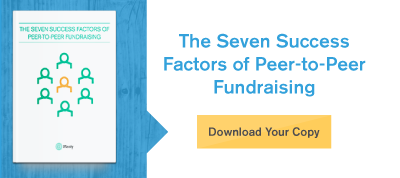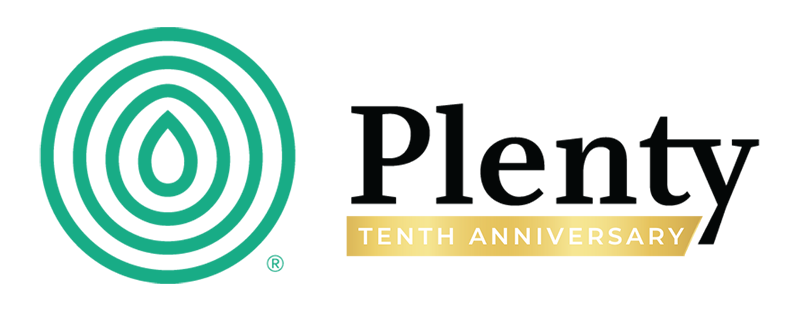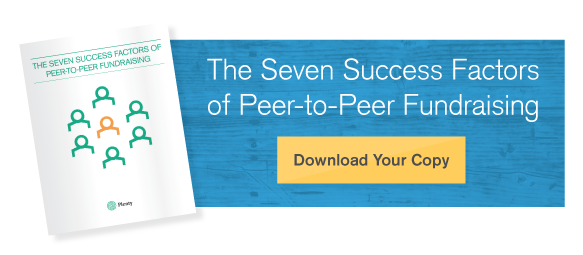Apply A “Fitbit Mentality” To Your Job
10,000 is the new magic number. Whether you’ve bought into the latest lifestyle craze or not, you’ve likely found yourself using the word “steps” more frequently than ever before. And if you are a Fitbit wearer, chances are you’ve taken an extra lap in the grocery store or given your dog the longer walk they've always wanted in order to hit the physician-recommended 10,000 steps per day.
Goal setting for wellness has its benefits, for sure, but Fitbit ownership implies a lifestyle change that has far-reaching implications for your career, and your ability to effect change at your organization. The Harvard Business Review calls this phenomenon “self-quantification” touting it as an indicator of high potential employees. Whether you are mastering this technique already or learning about it for the first time, we have the tips you need to become more efficient and successful at work.
1. Cultivate self-awarenessYou’ve probably heard that keeping a food diary can increase weight loss. Without an understanding of how often, and when, we reach for a bag of M&M’s or a Mocha Frappuccino, we are unable to identify the patterns and triggers that ultimately affect weight loss. It’s not that we’re unable to process information ourselves, but rather that we perform so many activities daily, that it’s simply impossible to surface patterns retroactively without a written record.
This is true professionally as well. Understanding our bad habits, triggers, and weaknesses makes us vulnerable, but is necessary for personal and professional growth. Self-awareness leads to a healthier, more productive, and often more compassionate life. All of which are qualities that improve performance and morale in the workplace.
 Try this: Keep a diary, take the Myers Briggs personality test, track your exercise, or simply ask your friends and co-workers for feedback after a tense conversation. Do your behaviors indicate dedication or discipline? Do you listen openly to criticism or become defensive? Take time to reflect on your actions and feelings, and record them when appropriate.
Try this: Keep a diary, take the Myers Briggs personality test, track your exercise, or simply ask your friends and co-workers for feedback after a tense conversation. Do your behaviors indicate dedication or discipline? Do you listen openly to criticism or become defensive? Take time to reflect on your actions and feelings, and record them when appropriate.
If your boss scheduled an impromptu review today and asked you, “What would you like to be doing more of, and what projects would you like to move away from?” how would you respond? Chances are, it would take some time to recall the projects or engagements that fired you up, and probably less time to land on those that didn’t thrill you. Now, imagine that you had taken time after your projects to reflect on your experience, or that you and your boss dedicated just ten or fifteen minutes to share your experiences. It would be much easier to speak with confidence about your professional future.
Keep in mind that you might find that you’re fired up about public relations and marketing, but not crazy about situations that require you to make a direct ask or a sale. You might find that your communication style is clashing with the way your boss processes information. That’s okay! Information will allow you to find more effective ways to work within your team, discover that you’re not in the right department, or even realize that you aren’t fired up about the mission at your organization. Each of these conclusions puts you in the driver's seat on the way toward a more impactful career – be it where you are right now, or where you need to go.
Try this: Set consistent touch points with your boss to talk about your work on different projects – not just during your six-month or annual reviews.
3. Prioritize, prioritize, prioritize.Your job description likely holds you responsible for dozens of outcomes. Whether you’re running a campaign, launching a new program, curating a blog, or leading a team, you’re tracking on tens of metrics every day. But are you actually tracking those metrics? If you aren’t, it’s time to start! And if you are, it’s time to do a gut-check on whether or not you’re tracking them in a consistent way, and whether or not you’re actually analyzing the data that you’ve been staring at. There’s simply no better way to make progress and achieve your goals than to collect and analyze quantifiable metrics in a consistent fashion.
On an organizational level, the metrics you choose to track are known as Key Performance Indicators (KPIs). We recommend that you don’t choose more KPIs than you can count on one hand: first, because you may not have the time or bandwidth to actively tend to that many factors, and second, because you want to be sure that the metrics you’re following directly impact the bottom line (your goals).
Try this: Take an inventory of the goals that are most important to your success. Then, write down the metrics that indicate whether or not you achieve those goals. Finally, look at those factors and ask yourself the following questions: Does this metric directly impact the bottom line? Do I have time and resources focused on this metric? Is this metric based on good quality data? If the answer is “yes,” keep the metric. If the answer is no, ditch it. You should be left with a handful of metrics that will serve as your personal KPIs.
4. Measure your progressThe longer you quantify your performance at work, your fitness regimen, or your work in the community, the more robust your personal success story becomes. If you quantify your personal contributions using the KPIs you determined for number 3, you will be equipped to share long-term and short-term progress to goals and determine influencers of successes and failures. You will know how much time, money, and support was needed to reach your goals, and how long it took you to get there. If you didn’t reach your goals, ask yourself “What is my progress on improving my weaknesses?” Approaching your activities in this way allows for improvement across the entire spectrum of your activities – not just those that are working well.
Try this: Set periodic checkpoints that are appropriate for each of your KPIs – be they weekly, monthly, or annually. Take the time to look back at your progress to date, and consider the factors that influenced your progress. Were you more productive and focused during the 14-hour workdays, or when you worked a normal schedule? Did you benefit from more involvement from leadership? How did your physical and social activities affect performance?
5. Hold yourself accountableTracking progress is great, and meeting goals is great – but it’s often what you do with your near misses and outright failures that determines your personal and professional growth. If you acknowledge failures at face value, but ultimately don’t make changes to your mentality, habits, or strategy, then the status quo will prevail. These changes are much easier said than done. For example, we all know that consuming fewer calories leads to weight loss, but it’s hard to overcome those late-night snack cravings or turn down happy hour to go to the gym instead.
Change is hard. Period. Allow yourself to lean on coworkers, mentors, friends, and family for support – after all, we all need mentors, gym buddies, and a shoulder to cry on. You don’t need to tackle your weaknesses alone – and in fact, you shouldn’t. Chances are, someone has already experienced your struggle and developed the strategy or technique that you’re looking for. You just have to find it.
Try this: Take your “not quite” wins or failures seriously, and commit to changing up your approach to achieve the outcome you’re looking for. In that process, don’t retreat into yourself to search for solutions: ask for help, use the Internet, or hit up Amazon for outside support. There’s no need to rely on intuition alone.
Once upon a time, we didn’t have the tools or technology to track our progress in a quantifiable way. Whether we like it or not, we now have more data at our fingertips and in our pockets than the President of the United States had at his disposal just decades ago! And using that data to cultivate a deeper awareness of your interests, habits, productivity, and successes doesn’t have to be complicated or painful. In fact, self-quantifying will not only leave you feeling more connected to your work, your mind, and your body – but it will also bring you closer to the impact you’re trying to make in the world.
Oh, and if you haven’t already – stand up take a lap around the office! A few extra steps will do the body good.
Need some reading material for your jog around the office? Download our e-book "The Seven Success Factors" for an in depth look at the seven areas of your fundraising program that have the most potential to impact your organization's success.
Share this
You May Also Like
These Related Stories

Speak Up, Idealists: Lessons Learned From Being An Introvert

Three Project Management Techniques To Fuel P2P Fundraising Success




Comments (2)